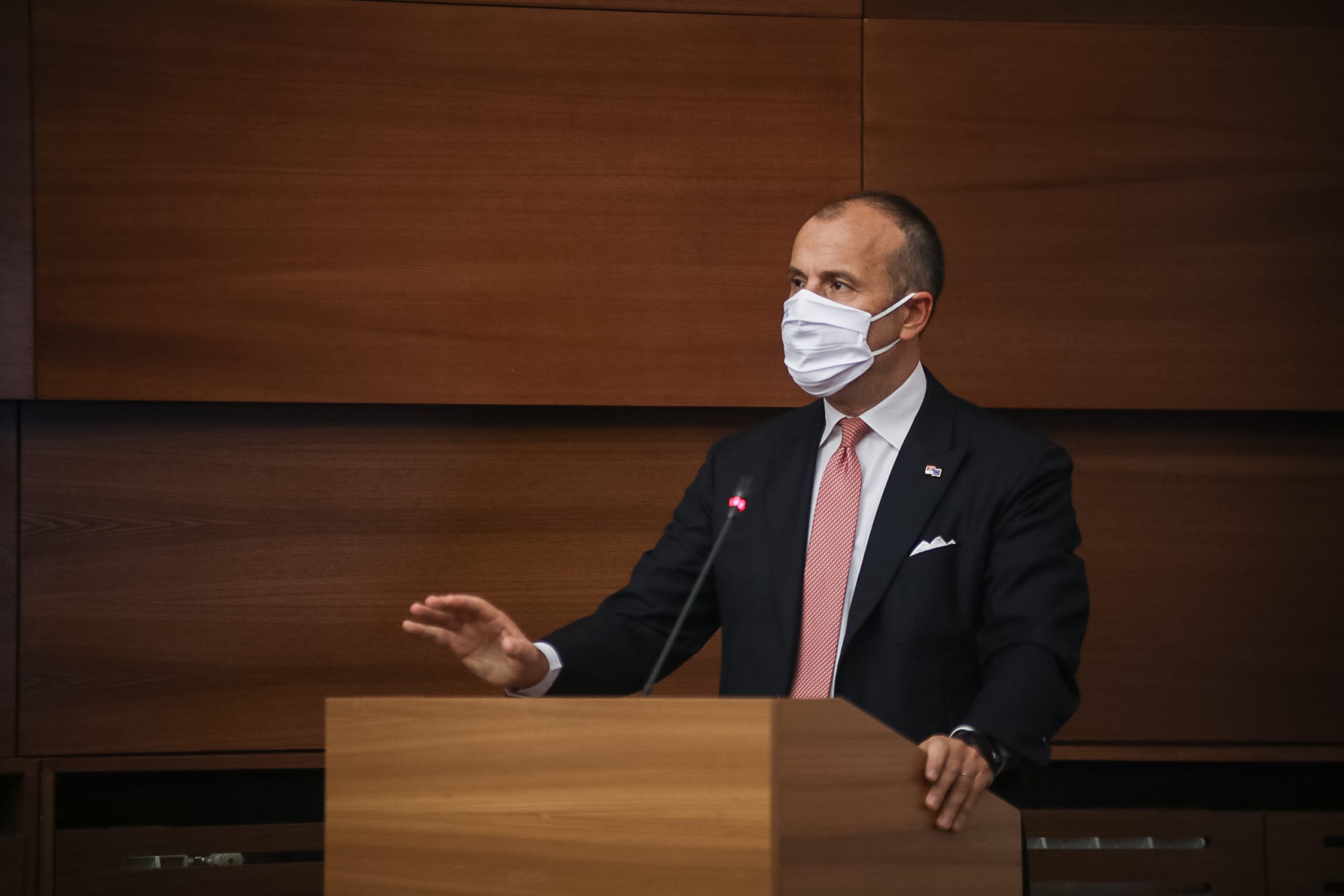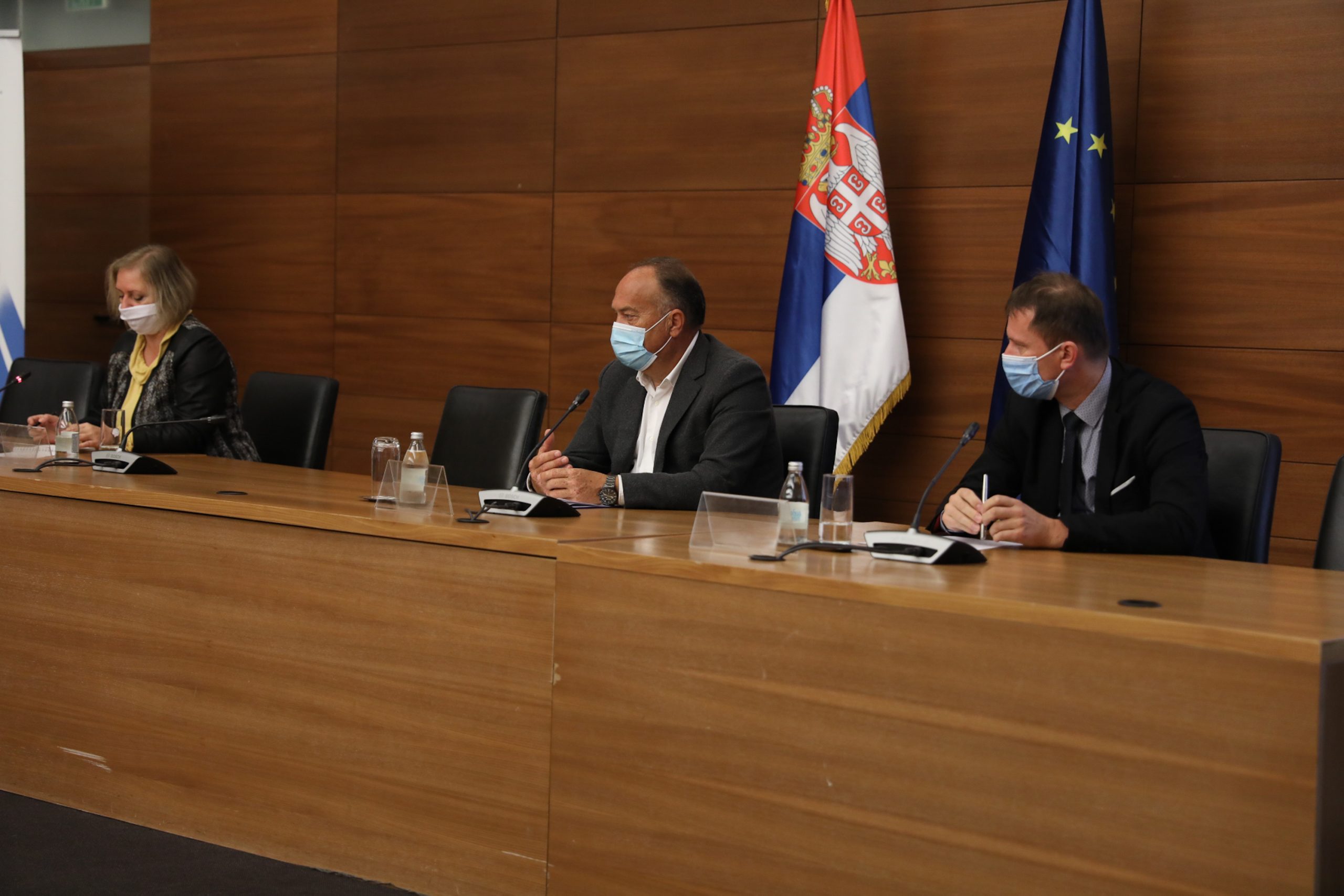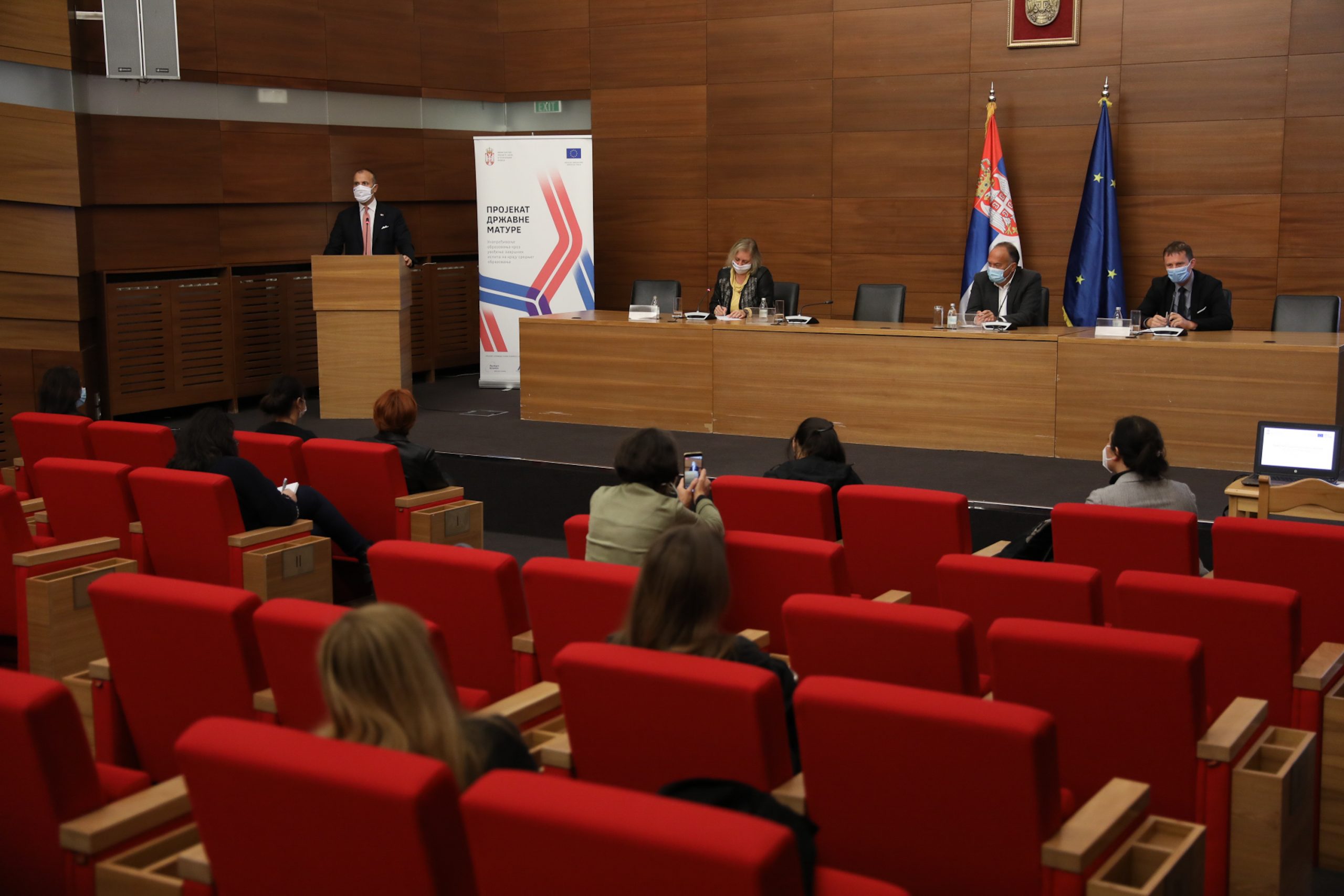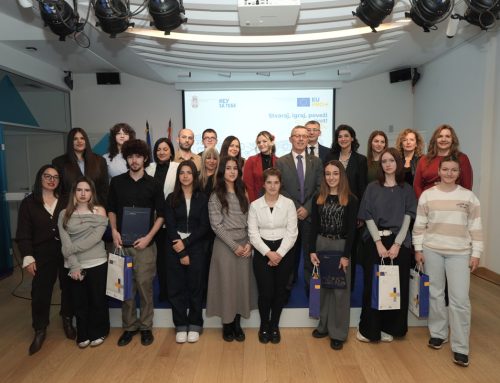In late October, students from over 100 high schools nationwide will have an opportunity to take a peek at state graduation exams as part of high school-leaving exam pilot scheme.
New model of state graduation exam will be introduced in 2021/2022 school year. “State graduation exam pilot” will take place in 50 grammar schools, 48 vocational high schools, and three art high schools to evaluate the quality of high school-leaving exams and the procedures that will be carried out in high schools as part of state graduation exam, with a goal to identify and remedy any potential shortcomings in a timely manner, and bring students closer to this type of knowledge evaluation.
Head of the EU Delegation to Serbia Ambassador Sem Fabrizi described the state graduation exam pilot scheme as one of crucial aspects of the project through which the EU supports introduction of high school-leaving exam in secondary education in Serbia. He pointed out that this is an important step toward reaching full harmonisation of the national education system with European standards, with the final goal of modernising education in Serbia.

“Rarely do projects have such a profound impact on the entire education system: this project will help to increase the quality of education as it will provide feedback about the quality of education in individual high schools and the quality of secondary education in general. The information gathered will guide future investments that will contribute to increasing the overall quality of education. At the same time, the education system will be more just, creating equal opportunities for all young people by allowing them to take a standardised test that ensures unbiased evaluation of their knowledge and competences. They will have equal opportunity at higher education and at continuing their career once they finish their education,” Ambassador Fabrizi added.
Minister of Education, Science and Technological Development Mladen Šarčević said that this project represents a milestone in raising the quality of education in Serbia.
“Once students pass the state graduation exam, they will have an opportunity to apply at any university, both in Serbia and abroad, and their status will improve significantly. The whole country wins—transparency will increase, and we will be able to identify any potential shortcomings. State graduation exam as a link between secondary and higher education and introduction of salary bands are the two most important aspects of the education reform in Serbia, and we owe it all to the European Commission and its ability to recognise those priorities and put in substantial funds for their realisation,” Minister Šarčević said.
An analysis of current concept of high school-leaving exam lays out a number of reasons that justify the introduction of state graduation exam: final year high school students must prepare for graduation and entrance exams at universities, which represents a significant burden. Graduation process is not standardised, and neither is the practice of high school-leaving exam—there are significant discrepancies in terms of contents, procedures and grading criteria. In their current form, high school-leaving exams cannot replace university entrance exams.

Also, due to a lack of standardised high school-leaving exam, each college holds different entrance exams and preparation courses, which must be paid for by students and their parents. Given that college entrance exams are not standardised either, each college holds a different matriculation exam. In order to increase their chances of getting in, future university students often apply for more than one college, which increases their responsibilities and expenses.
Team leader of the state graduation exam project, Gregor Mohorčič, said that the pilot graduation exam, as well as subsequent official state graduation exams, were designed as part of an inclusive process.
“The first pilot of state graduation exam will include members of several national minorities with tests will be translated into their corresponding languages. Also, students with disabilities will take part in this pilot and they will take tests that are adapted to their abilities. Once the pilot is over, the tests will be distributed to schools nationwide,” Mohorčič said.
Introduction of state graduation exam is a complex piece of reform that includes a number of interested parties. It is, therefore, essential to ensure the system’s credibility and the public’s trust in its results. This will be achieved by tackling all legal, institutional, and logistic issues and informing the public about each next step. Students and their parents are the first to be informed about and made aware of benefits of the new system. The EU supports Serbia in implementing this reform, in line with good practices from the region and the EU.
The EU has allocated EUR3.7 million to help Serbia introduce high school-leaving exam in secondary education through state graduation exam project “Improving the quality of education through introduction of high school leaving-exam” in partnership with the Ministry of Education, Science and Technological Development. Starting from January 2019, and over the course of three years, the project supports education system institutions to prepare, test, and introduce standardised graduation and high school-leaving exams at the end of secondary education, thus contributing to raising the quality of education and greater inclusion. For more information, visit the project’s website.
The European Union, as the leading donor in Serbia, supports modernisation of the education system and its harmonisation with EU standards and practices. Since 2003, the EU has donated over EUR100 million for education sector reform in various areas—improving pre-school education, reform of vocational secondary education and adult education, renovation of schools and universities, support for inclusive education, etc.




